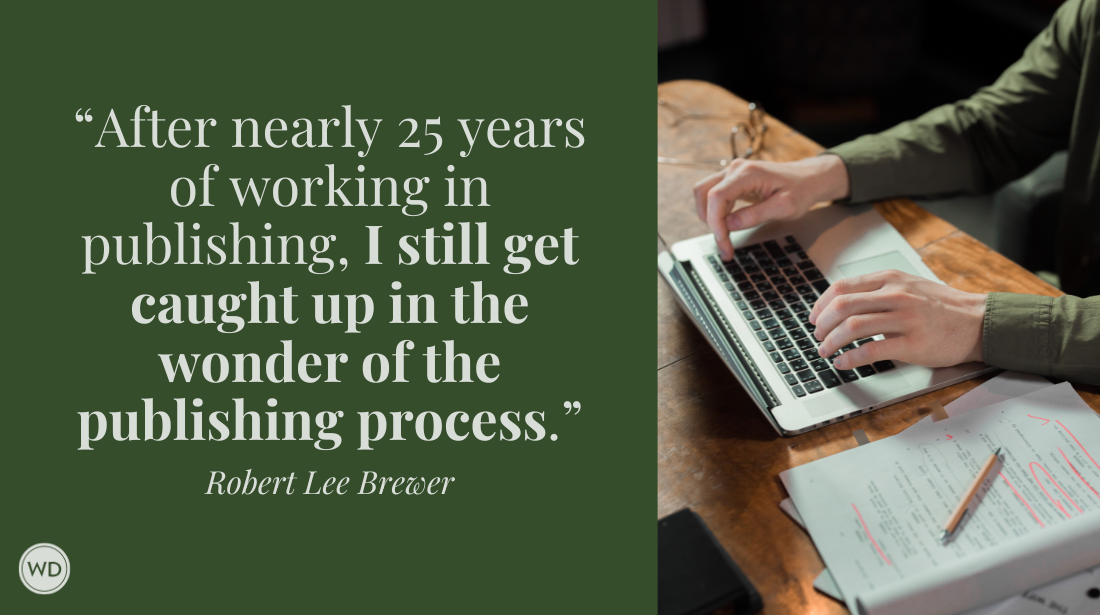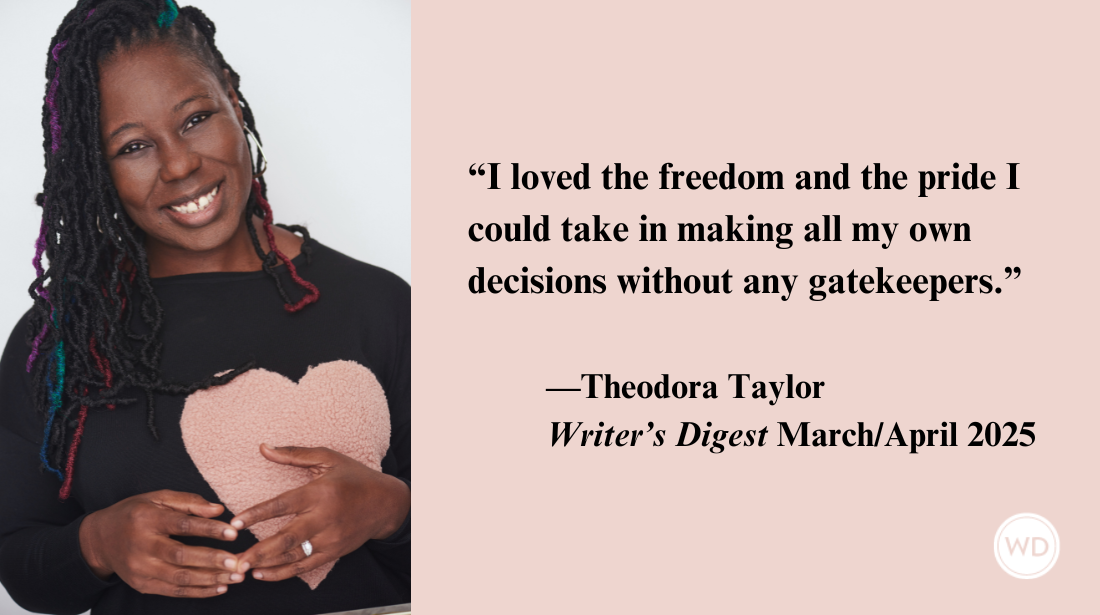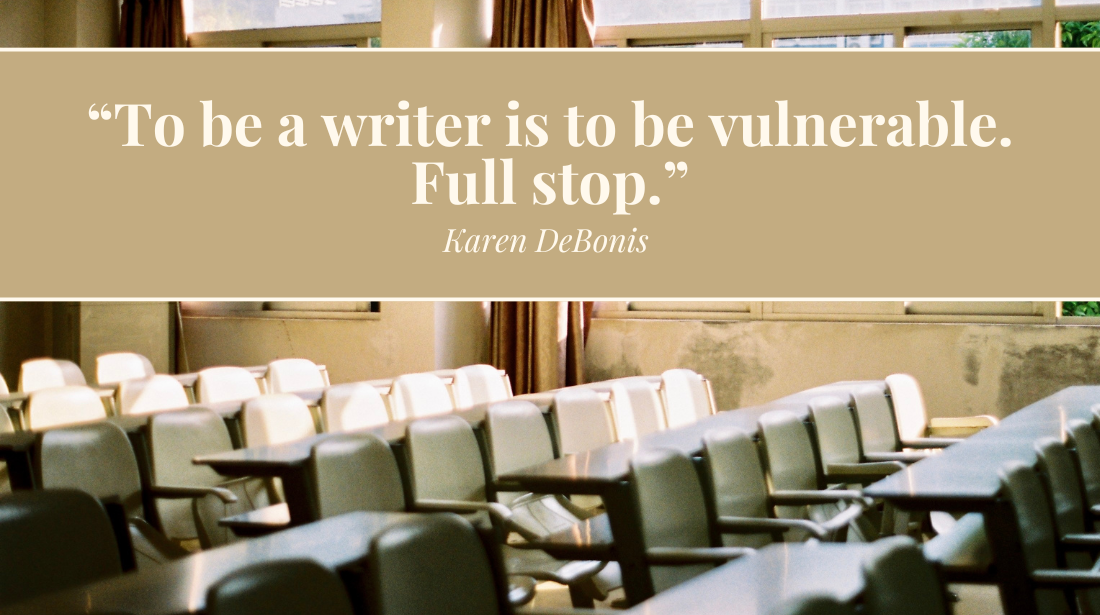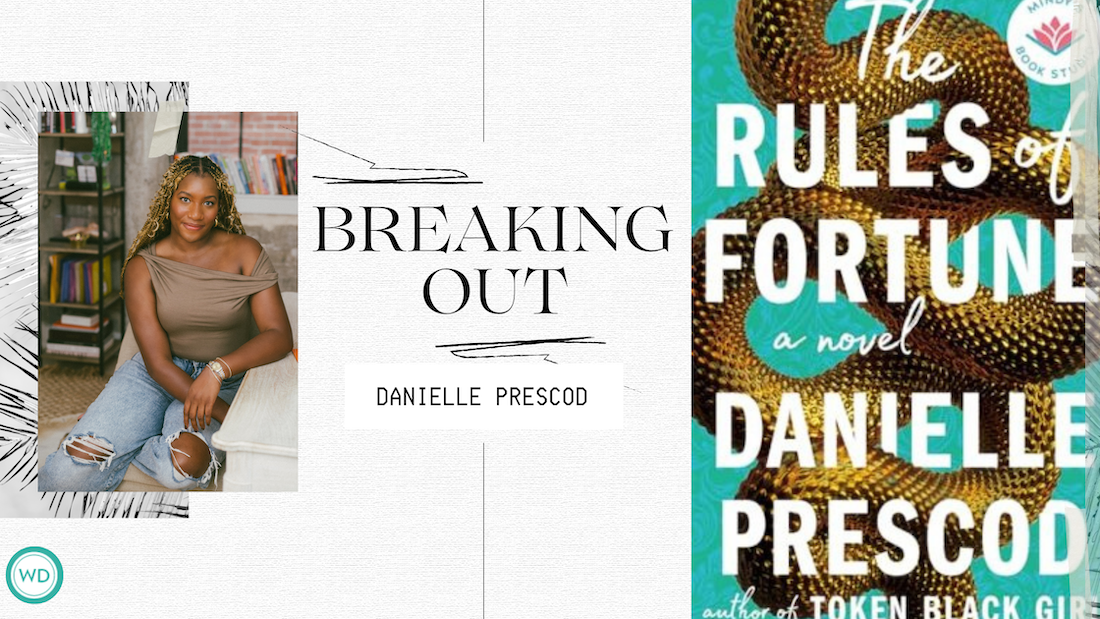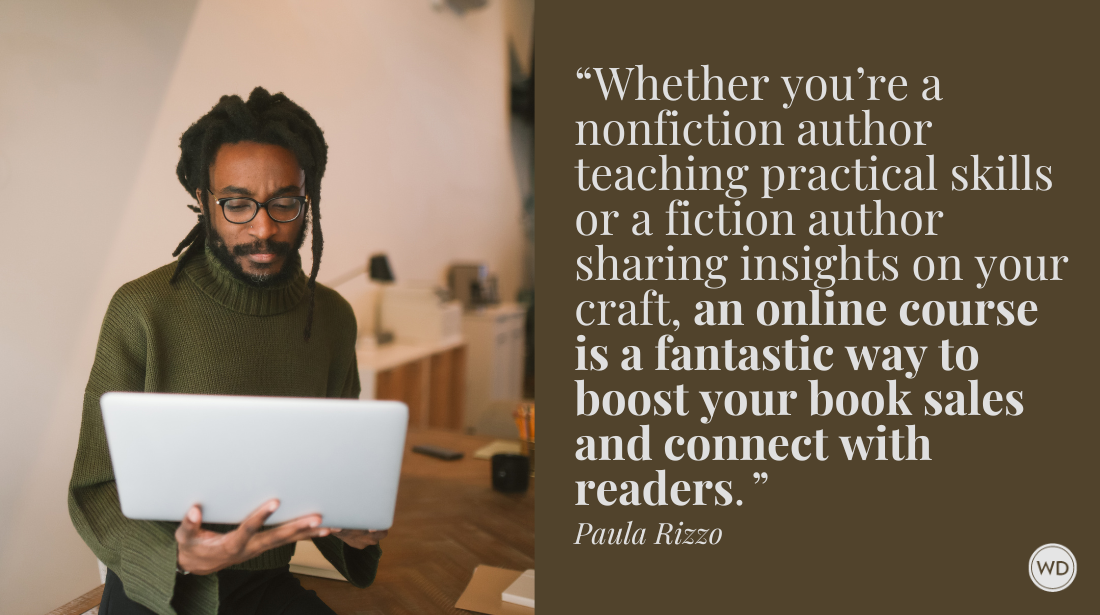Making the Dream a Reality: How to Become a Full-Time Writer
Freelancer Chris Saunders shares his top advice on how writers can go from writing as a hobby (or side hustle) to becoming full-time writers.
For some of us, writing is a hobby. Something we do simply because we enjoy it. And there is nothing wrong with that. For others, it's a sideline. We still have fun with it, but we manage to sell the odd article or short story for a few extra bucks. It all helps, right?
Many of us yearn to break through as a full-time writer but still have that day job, which pays the bills. Most of us are self-aware enough to know that we are probably never going to make J.K. Rowling money. That isn't to say it can't be done. After all, J.K. Rowling herself did it. But the odds are stacked against you. A far more realistic goal is making a steady living from your passion which, though not easy, is far more achievable.
There are two ways of accomplishing this goal. The first is to land a job in the media. That means applying for entry-level jobs at newspapers, magazines, trade publications, publishing houses, and even radio stations, TV production companies, and movie studios. There are thousands of them all over the world, in every country, and they all need content. Don't be afraid to apply to those jobs.
If you are reading this article you obviously have an interest in the media so that's the first hurdle. Plus, there is a good chance you'll have a couple of cuttings or published credits, maybe a blog or a book, you can point to and use as evidence of your skills. In many cases that is all you need. Yes, a degree (in any topic) helps your case but is by no means essential. What's the worst thing that can happen?
The other route to becoming a full-time writer is by going freelance. This is actually the preferred option for some as it offers more flexibility, if not outright stability, and as you are writing for multiple clients rather than one employer, it keeps things fresh and exciting. You get to make your own schedule, and know exactly where all the money is going. For many, it's the dream ticket. They just don't know how to make it happen. That's where this article comes in.
Begin in the Beginning
We are all familiar with the expression 'Fail to prepare, prepare to fail.' The first thing you are going to need is a safety net. This will at least take some of the pressure off. It is recommended that before making any kind of significant career change, especially one with so much uncertainty attached, you accumulate enough savings to cover your living expenses for a year.
For most of us, that could be a little unrealistic. Who has that much money lying around? Obviously, the exact amount we are talking about here depends on your outgoings and other financial responsibilities, but you should aim for enough savings to keep you afloat for at least three to four months.
Bear in mind that even after you sign a contract and make a sale, you invariably have to wait a couple of weeks or months for the payment to hit your bank account.
Lay the Foundations
Before you quit that day job, try to make sure you have some contracts and regular commissions under your belt. Of course, that is easier said than done. It all comes down to how hard you are willing to work for your dream.
Being self-employed means you get what you work for, and no more. The process can be as fast or slow as you want, but try to get a minimum of three or four regular clients. They don't need to be paying you the earth, but aim to cover at least 40% of your anticipated monthly outgoings with these regular commissions and cover the rest with more sporadic work.
Ideally, you'll be able to build on this figure incrementally as you become more established. How many commissions you need ultimately depends on how much they pay and how that figure equates to the amount required to cover your basic requirements. Do the math!
Be Flexible
Of course, we would all like to count someone like Rolling Stone or The New Yorker as one of those regular clients because they pay so well, so why not ask? Other people are doing it, so why not you?
Study the markets, be invested, figure out what they want, and give it to them. Failing that, don't be too fussy. Write anything for anybody, and take every job that comes up. If it falls outside your comfort zone, look at it as a challenge.
At first you probably won't be selling many articles for upwards of $2,000. But selling 10 articles to less prestigious titles at $200 each is definitely within your sights. Over the course of my career I have been paid wildly varying amounts for features covering everything from chili pepper farming to Chinese media manipulation.
Create Multiple Revenue Streams
This epitomizes flexibility. When freelancing, don't rely on just one or two sources of income. Instead, try to create as many revenue streams as possible. Some have to be nurtured, and others may only ever bring in pennies. Regardless, don't neglect them.
The bulk of my income comes from writing magazine articles, but I also sell short stories, receive book royalties, and grab the occasional editing or proofreading gig. You can also monetize your blog or social media channels if you have a large enough following. Another useful revenue stream are platforms like Medium and Fiverr. Investigate everything, and rule nothing out.
You might also think about taking on some part time work. Pubs, cafes, and restaurants are always looking for casual staff, and these places are great for meeting contacts and sniffing out stories. Being a journalist is a very precarious existence, even if you work for a publication full-time, and you regularly have the rug pulled out from under you.
While I was making the transition to full-time writing, and at times since, I did bar and hospitality work, teaching, and even the odd medical trial. That might not be for everybody, but it pays well and offers something you can incorporate into your writing later.
Raid Your Archives
You are going to need a boost from time to time, especially early on. Most of us have been writing for years, and have built up a little (or even a big) treasure trove. Short stories, articles, poetry, blog posts. That's money. You just have to find a home for it.
Even if it has been published before, check when or if the publishing rights have reverted back to you, and if then look at selling them as reprints. Give the piece a lick of paint or perhaps update it before you send it out. You're probably a much better writer now than when you wrote it. You might also be able to tweak some pieces to fit specific markets you weren't aware of before.
Don't Rest on Your Laurels
So you are starting to see some success in your freelance career. Congratulations! Now the hard work really begins.
Yes, your new routine allows you to be flexible, but you still have to put in those hard yards. Try to settle into a system whereby you have a conveyor belt of work laid out before you, all at different stages of completion. You might have two articles out on submission, another two in the polishing phase, and two in the research stages.
People often ask where my ideas come from. They are usually referring to fiction, but it could just as easily apply to nonfiction. My answer is, where DON'T ideas come from? They are all around you; in movies, games, the news, real-life interactions, gossip you overhear at the coffee shop. Just be receptive and jot down ideas when they come.
Under Promise, Over Deliver
Regardless of what you did for a living before, your reputation is now everything. Hit your deadlines and deliver your clean, accurate, error-free, well-polished copy on time and to spec. This is the bare minimum expected of you.
If you disappoint an editor, it's unlikely they will be willing to give you many more opportunities. Freelance writing is very competitive. So to summarize, put yourself out there and throw the dice. Just be smart about it.
Chris Saunders, who writes fiction as C.M. Saunders, is a writer and editor from New Tredegar, Wales. After teaching English in China for several years he worked extensively in the publishing industry, holding desk jobs ranging from staff writer to associate editor, and is currently employed at a trade publication. His fiction has appeared in numerous magazines, ezines and anthologies around the world including The Literary Hatchet, Crimson Streets, 34 Orchard, Phantasomagoria, Burnt Fur, and DOA volumes I and III, while his books have been both traditionally and independently published. His latest release is the horror western Silent Mine on Undertaker Books.



